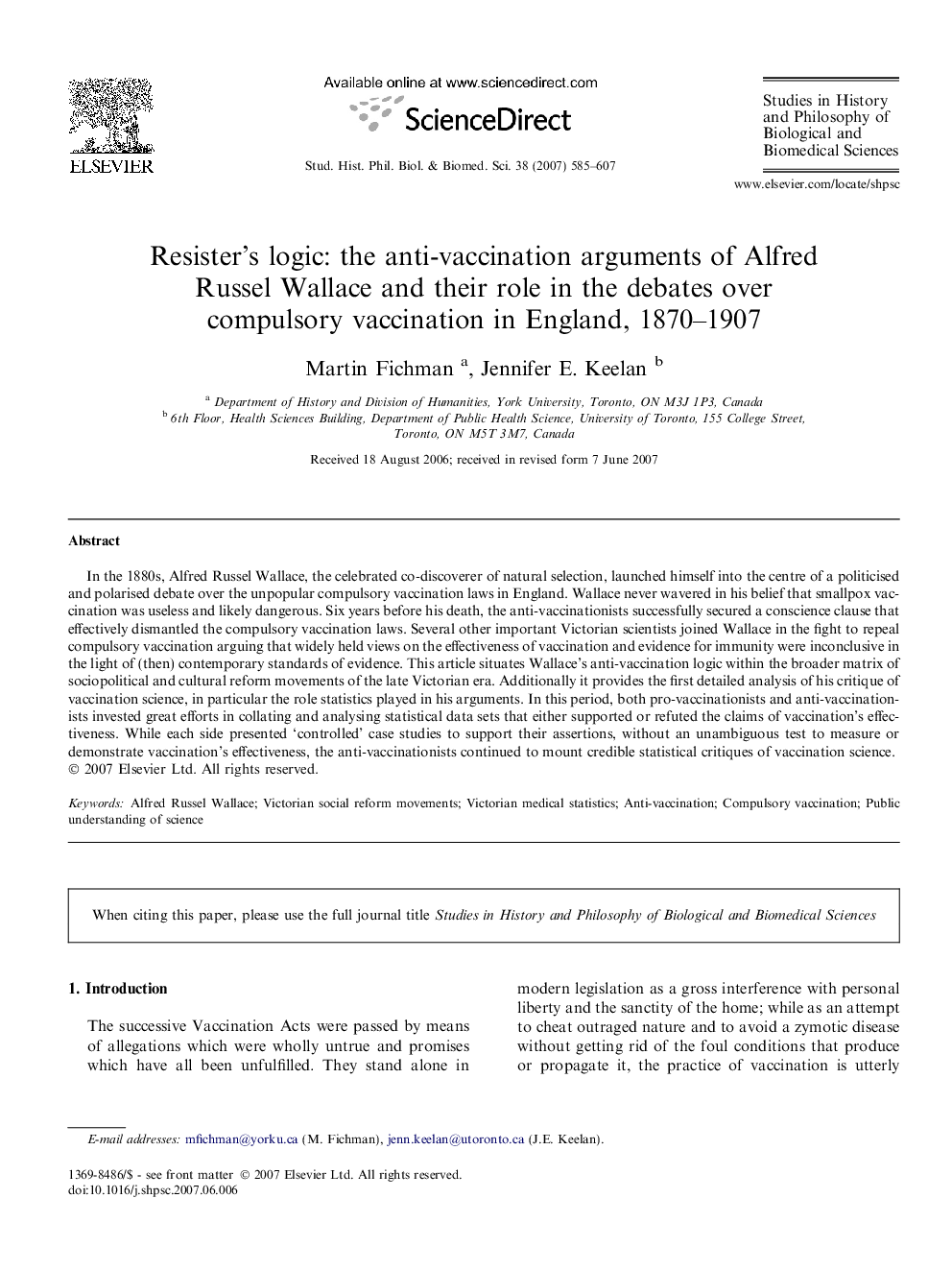| Article ID | Journal | Published Year | Pages | File Type |
|---|---|---|---|---|
| 1162223 | Studies in History and Philosophy of Science Part C: Studies in History and Philosophy of Biological and Biomedical Sciences | 2007 | 23 Pages |
In the 1880s, Alfred Russel Wallace, the celebrated co-discoverer of natural selection, launched himself into the centre of a politicised and polarised debate over the unpopular compulsory vaccination laws in England. Wallace never wavered in his belief that smallpox vaccination was useless and likely dangerous. Six years before his death, the anti-vaccinationists successfully secured a conscience clause that effectively dismantled the compulsory vaccination laws. Several other important Victorian scientists joined Wallace in the fight to repeal compulsory vaccination arguing that widely held views on the effectiveness of vaccination and evidence for immunity were inconclusive in the light of (then) contemporary standards of evidence. This article situates Wallace’s anti-vaccination logic within the broader matrix of sociopolitical and cultural reform movements of the late Victorian era. Additionally it provides the first detailed analysis of his critique of vaccination science, in particular the role statistics played in his arguments. In this period, both pro-vaccinationists and anti-vaccinationists invested great efforts in collating and analysing statistical data sets that either supported or refuted the claims of vaccination’s effectiveness. While each side presented ‘controlled’ case studies to support their assertions, without an unambiguous test to measure or demonstrate vaccination’s effectiveness, the anti-vaccinationists continued to mount credible statistical critiques of vaccination science.
